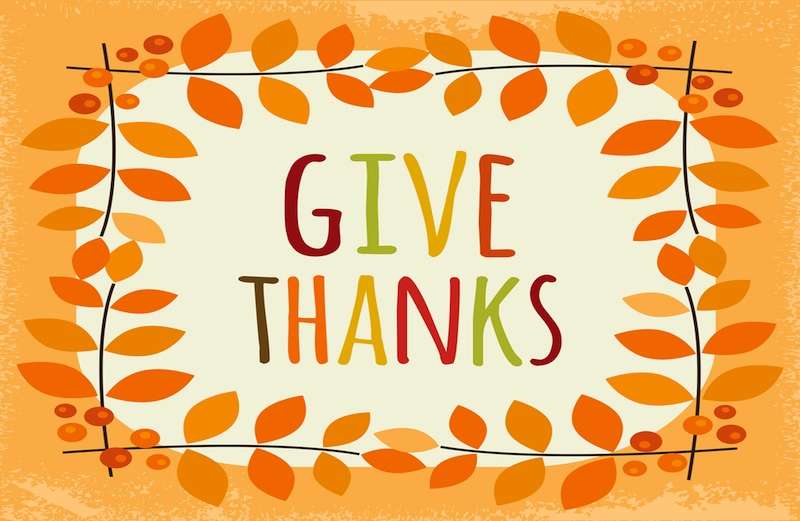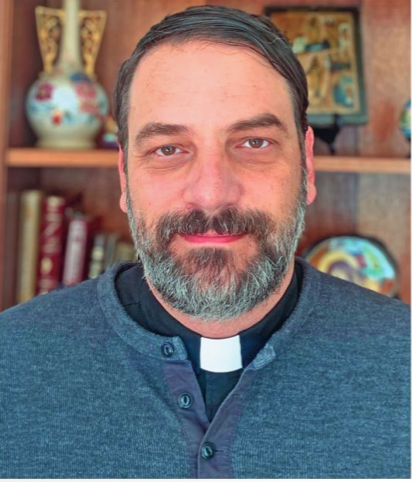Hamptons Soul: Sharing Gratitude, Generosity and Encouragement

Thanksgiving and the holiday season that is now upon us is a time for reflecting on those aspects of life, and the people in our lives, that bring us joys both small and great, help us find peace and purpose, and make the world around us a place to be filled with kindness and hope.
Father Constantine Lazarakis

Although a “secular” holiday, Thanksgiving Day directs us to one of the greatest “spiritual” virtues—gratitude. Melody Beattie famously said, “Gratitude unlocks the fullness of life. It turns what we have into enough… It can turn a meal into a feast, a house into a home, a stranger into a friend… Gratitude makes sense of our past, brings peace for today, and creates a vision for tomorrow.”
This Thanksgiving, COVID-19 continues to surge, limiting our family gatherings, threatening the health of many and bringing tremendous anxiety to all. Our daily schedules are upside-down, and many are struggling through the devastating economic impact of the virus. All of this while election controversy continues to dominate the news and burden our political system. In circumstances such as these, we may find it difficult to express gratitude.
This is where I turn to the words of St. Paul: “Do not be anxious about anything, but in everything by prayer and… with thanksgiving let your requests be made known to God. And the peace of God… will guard your hearts and your minds….” Gratitude is so important because it has a double effect. When we, even in dire hardship, find something to be grateful for, that gratitude simultaneously eases the burdens on our own hearts and allows us to be more generous toward others. In realizing that every breath is a gift, we give ourselves room to breathe. And in the space that gratitude creates, we are able appreciate and love the other.
This Thanksgiving, be encouraged! Lighten your grip on the steering wheel. Even amidst the profound difficulties we face, there is a great deal for which to be grateful. Identify the blessings in your life, and take the time to turn your eyes toward the sky, expressing thanks. And in that spirit of gratitude, offer kindness to whomever you encounter, knowing that they too are subject to these circumstances, and that your kindness, born of gratitude, may multiply kindness and gratitude. That’s what we yearn for, and in a COVID-19 year that’s what can make today’s meal into a Thanksgiving feast.
Rabbi Josh Franklin

The great poet laureate and musician Leonard Cohen wrote a line of music that has been playing on repeat in my head since the first time I heard it many years ago: “And even though it all went wrong, I stand before the Lord of Song, with nothing on my tongue but Hallelujah.”
Cohen’s musical masterpiece “Hallelujah” speaks of a counterintuitive gratitude that is “cold” and “broken.” The moment when everything falls to pieces might just be the perfect time for a hallelujah.
We tend to overlook gratitude in the face of sorrow. One of the hidden gems of faith is the idea that gratitude helps us through tough times, offers us comfort when we feel most vulnerable, and lends perspective on how to live a content life when the world seems dark. Thanksgiving celebrates gratitude no matter what is going on in the world. Particularly during this dumpster fire of a year, vocally expressing gratitude may just help alleviate the pervasive isolation, hardship, and suffering.
If you ask a traditional Jew how they’re doing, they will likely respond with the words “Thank God!” They could be having a rough day, dealing with illness, or might be going through a divorce, yet the response is always the same: “Thank God!” Many people find this confusing. “Thank God” isn’t an empty response—rather, it expresses a mentality of gratitude no matter what life offers us.
The Talmud, an ancient book of Jewish wisdom and debate, teaches us a simple prayer of gratitude when we can’t think of anything for which we are thankful: “We give thanks to you God for the mere ability to be able to thank you.” While our intuition might tell us that gratitude is a product of happiness, the wisdom of faith suggests just the opposite.









